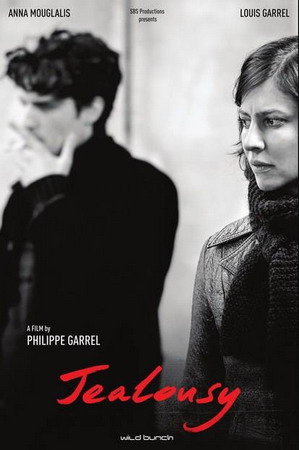 Philippe Garrel’s “La Jalouise†or “Jealousy†in English opens with a women begging her daughter’s father, Louis (Louis Garrel), not to leave her. The raw emotion propelled by the scoreless black and white scene is a clear indication of what’s to come in this 77-minute film.
Philippe Garrel’s “La Jalouise†or “Jealousy†in English opens with a women begging her daughter’s father, Louis (Louis Garrel), not to leave her. The raw emotion propelled by the scoreless black and white scene is a clear indication of what’s to come in this 77-minute film.
Philippe Garrel’s black and white French film is a look at love, fidelity and parent-child relationships—although short, it is an intimate film that feels like you are just watching real life being filmed. “Jealousy†calls back to many silent films with not only the fact it is in black and white, but the use of close-ups to convey the characters’ emotion—it may lack pace, but “Jealousy†is one of those films that lingers in your mind and heart after viewing it.
The film is about a young actor, Louis. He lives with his girlfriend Claudia (Anna Mouglalis) after separating with the mother of his child (Rebecca Convenant). It isn’t all sunshine and rainbows in this black and white world. Louis is working at a local theatre and does not bring in much money; Claudia is an out of work actress that struggles with their poverty and living in their prison-like small apartment.
Claudia’s constant being at home implants a rabid jealousy that is well founded, as Louis is not the most faithful of guys. That jealousy drives her to dabble in infidelity—but she is not the only jealous one.
Louis’ daughter, Charlotte (Olga Milshtein), loves her father. They have a playful relationship and she even has a soft spot for Claudia. Cannot ask for much more from a Stepmother, that doesn’t sit too well with her mother Clothlide. She is noticeably hurt when her daughter comes back from her days with her father.
Soon a divide between Louis and Claudia spurned from their lack of movement and Louis’ complacency.
The greatest achievement of “Jealousy†is its ability to display every side of that passionate emotion that at times burns brighter than love itself. The film examines how that emotions effects those in a relationship and those left behind, that being Clothlide—Covenant’s subtle performance gives audience members a look into a single mom suppressing her emotions for the betterment of her child. She does not have a lot of screen time, but it is hard not keep you eyes glued to the screen.
Louis Garrel (who is the director’s son) as the protagonist is fantastic. His character is a romantic that finds comfort in acting, but fails to understand the people around him. Both he and Mouglalis’ scenes are the films’ strongest and that has a lot to do with Philippe’s direction.
Close-ups of actor’s face and hands amplify their performance with many of their feelings not being said out loud, but said through their body language, which gives the film a naturalist feel. The little use of music also adds to this, as only a couple scenes have any music and make the songs hit harder when they do play—not one shot or creative decision is a throwaway in this film and Philippe must be commended for this.
One knock against the film would be pace. It’s short 77-minute runtime feels more like 100 minutes. “Jealousy†makes up for it with the simple fact that the slow pace adds to the film’s realistic aura.
Jealousy is an emotion that many of us have succumbed to, and “Jealousy†captures that perfectly. There are no loud arguments or spicy sex scenes, just people dealing with human emotion that keeps you engaged with real performances and masterful direction. “Jealousy†is a film that may not find a huge audience, but if you are lucky enough to uncover it—it’ll be one of your favorite hidden gems.

Leave a Reply